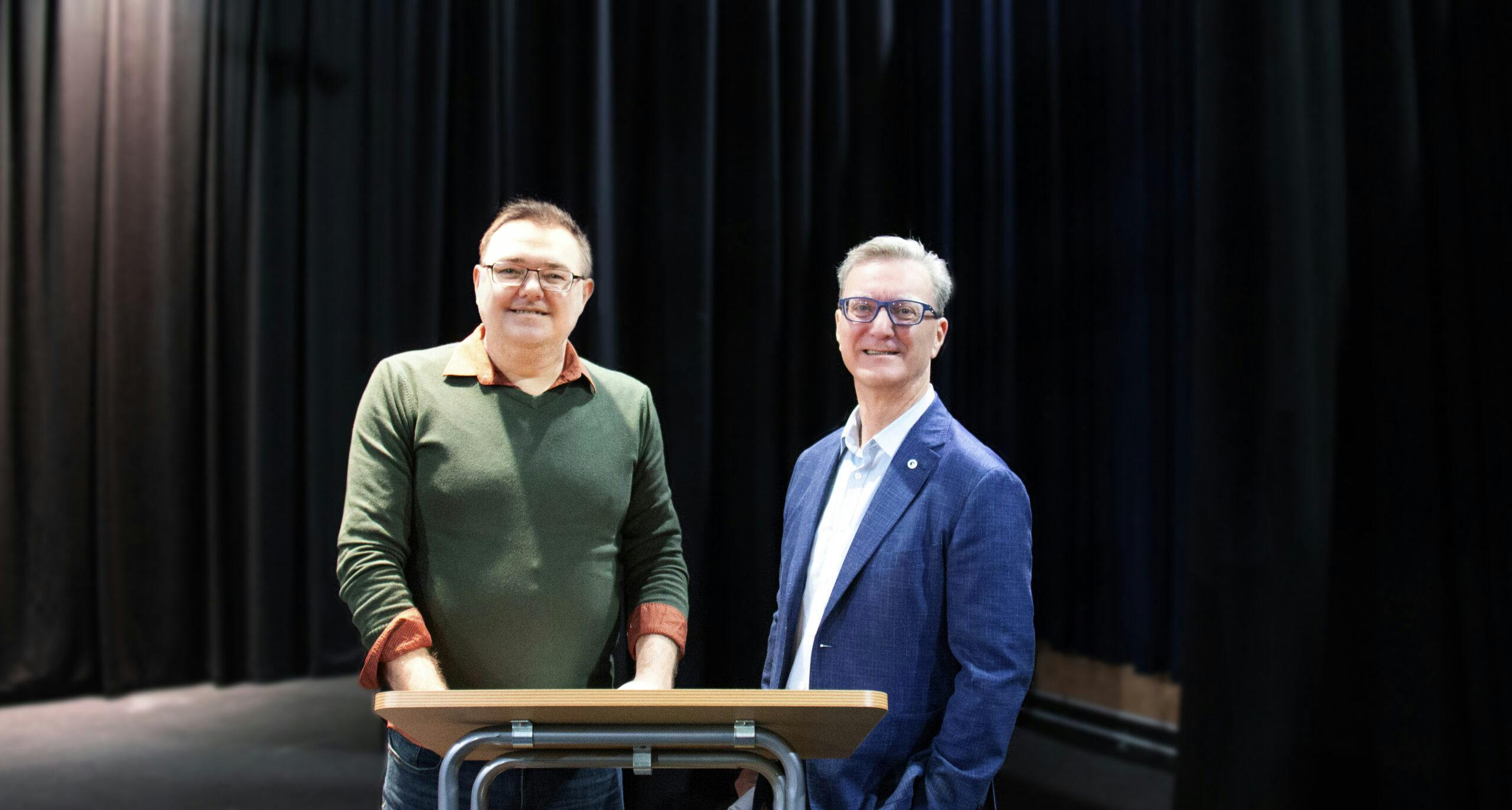Speeches about attracting Moulin Rouge and lying about V.D! Yes, all true!
Thursday, 8 June 2023
There was an amazing array of information and entertainment available on Thursday at the launch of our first Speaker Series event including terrific insight into Canberra's plans to attract huge stage performances along with some anecdotal and somewhat humorous examples of why finding family military records can sometimes be problematic.
While the rain may have kept audience numbers down, Gordon Ramsay's address at the Belconnen Community Theatre gave audience members a fascinating and detailed look into historically significant icons including Layon Homestead, Canberra Theatre Centre and Canberra's Museum and Gallery.
Mr Ramsay also touched on the grand plans for the ACT, with the aim of becoming Australia's Art and Culture Capital with the recently announced plans to expand Canberra's cultural precinct.
"There's a reason why Canberra doesn't get stage shows like Hamilton the Musical or Moulin Rouge," he said.
"Those productions have shows and production equipment that simply won't fit in our current facilities.
"To say that I am excited is a massive understatement, I honestly get asked if there's a better job to have of mine and I can't say there is," said Mr Ramsay.
Mr Ramsay's passion for local history and culture was only matched buy his knowledge of heritage listed properties and the challenges of keeping sites including Layon Homestead looking grand while retaining it's original appearance and building materials.
"We have a dedicated team, there are heritage focused architects in Canberra, we all work very hard to keep Lanyon looking spectacular while retaining it's foundations,"he said.
Family history searches complicated by nicknames, typos and lies
Our small audience then took a crash course from Australian War Memorial librarian Jennie Norberry who gave great information on how to start a search for a long-lost relative serving in the military with the barest of details.
She explained which organisations are best suited to helping your search, which conflicts are likely to archived and possibly easier to research than others and which human errors will make your search all the more challenging.
Ïn many cases surnames may have faded from official documents, sometimes the registrar may have misspelled the persons name and especially for World War One when photographic documentation wasn't required, people simply lied," she said.
"Back then if you had a medical reason that disqualified you from joining the army, you'd go to the next town, change your name and sign up," said Ms Norberry.
"Sometimes people would be sent home because they have VD (venerial disease), so then they'd sign up again under a different name.
"Perhaps the worst example is at the time (WWI) married men were required to give a quarter of their pay to their spouse," she said.
"So some men would make up a name to avoid that; these are all reasons hunting for military records can be challenging."
The takeaway message from Ms Norberry was if in doubt, call the War Memorial (02 6243 4211) when starting the journey of finding a loved one.
Next week we learn how to avoid cyber criminals!
The CRCS Speaker Series continues next week (Thursday, 15 June at 10am) with a very different theme, one perhaps more pertinent to today's climate of how we receive news: Cyber Security.
How safe are we online, is our data safe and can we trust the corporations to safeguard it? These questions were answered in worrying fashion in 2022 as the nation saw Optus, Medibank Private and Woolworths, among others, infiltrated by cybercriminals.
In our next speaker event we'll hear from a cyber expert who's seen the evolution of the internet and it's inherent risks exposed over the past 20 years.
We will also be joined by Care Financial to learn how those corporations aim to keep us safe and how seriously they view the threat of cyber criminals.
